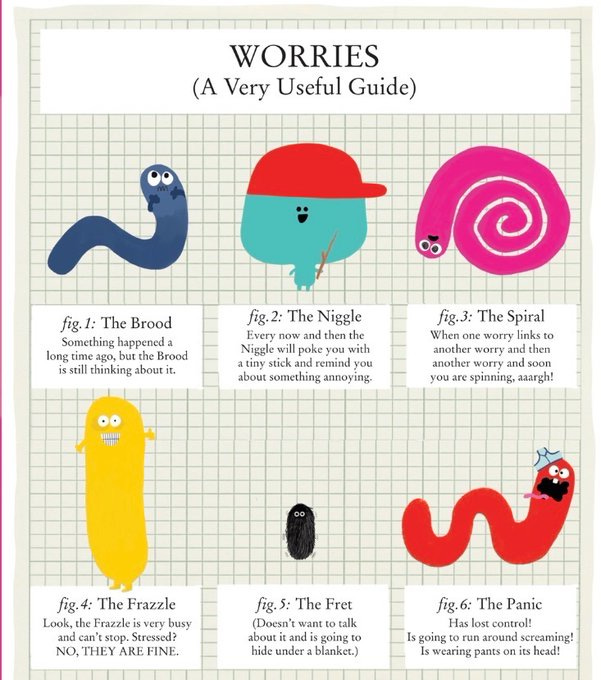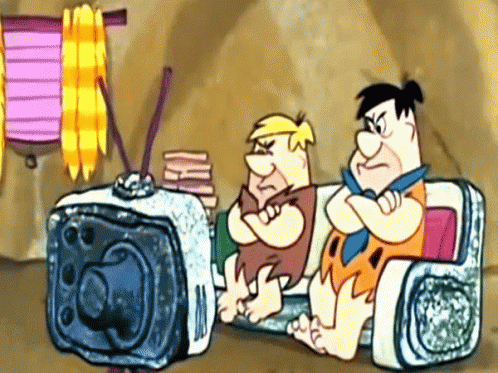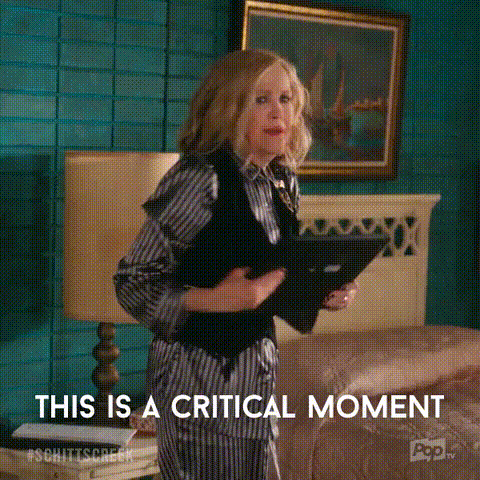Yo, do you have netflix?
How did we do a full circle and end up back at cable?
Every two weeks, we read a news update about a streaming site bundling up with another, offering old-school live streaming ‘channels’, etc. Inevitably, folks will comment that this is a return to cable.
And well, it is. It’s just a costly cable plan that doesn’t deliver on its claim of offering ad-free content at cheap prices.
Down with cable; long live cable
When streaming platforms like Netflix started, they aimed to offer a library of digital content (movies, tv shows, etc.) in an ad-free format for a reasonable price.
Now, with “crackdowns” on password sharing, geo-locked content, rising prices (Netflix’s highest tier has crossed $20 in the US), and, of course, a return to ads, those goals have been long abandoned for the ultimate one: make more money (immediately).
When we pay for streaming services, there’s an implicit understanding that we can, you know, stream things. Forget about the ad-free and ad-ful tiers — the idea that you can barely find movies and tv shows you’d like to watch on the stuff you pay for is ridiculous.
I can’t tell you the number of times I’ve googled a film (a reasonably old one, not one fresh out of theatre) and found that it’s on a streaming site that I pay for but is not included in the price. I have to ‘rent’ that movie for an additional price.
Okay, I’ve done that in the past. Physical DVD libraries existed, and Netflix got its start there. But I thought that was the whole system they wanted to disrupt? 🤔
Sometimes, even when the TV show you want to watch is available, it can disappear from the streaming platform overnight. Different countries and regions have different copyright and time-based laws. In 2023, Disney apparently did a ‘content purge’— it deleted several shows and movies (unreleased, new, and old) for a tax break and to avoid paying workers.
Media companies have learned that by removing tv shows and movies from their streaming platforms they can write down the value of their “content assets”, which in turn reduces their overall tax bill. It also reduces the licensing fees these companies are paying.
Disney expects to take a write-down in the June quarter of $1.5 billion-$1.8 billion from removing content from its streaming platforms. By writing down the value of the content assets, Disney can remove that from its balance sheet and reduce its tax bill.
For everyone except the higher-ups at these purge-happy media companies, this is a bad idea:
As consumers, we lose out on content to consume. Whether we joined the streaming platform for something specific or to indulge in various shows/movies, removing a bunch of stuff simply doesn’t allow us to fully enjoy what we pay for.
People who work on these movies and tv shows have nothing to show for their work. When Disney decides to delete a movie within 3 months of its release for that tax break or when Netflix refuses to renew hugely successful shows, people lose access to what they’ve worked on and lose out on social proof — you can’t link to unavailable shows on your CV.
For our culture and world as a whole, this is a slow march to controlled content—not censorship, exactly, but a form of limiting access for several reasons.
Do you really own what you pay for? Probably not
Now, let’s talk renting. Or buying a copy of a film or tv show or anything to store digitally. If you thought you ‘owned’ that forever, might I direct you to the recent Crunchyroll x Funimation acquisition debacle:
Crunchyroll won’t support the digital copies redeemed through Funimation. This promotion allowed users to redeem digital copies of a Funimation Blu-ray or DVD they purchased, giving them the ability them to store and view the show or movie through the streaming service. Funimation said users could keep the copies “forever” — but that’s clearly not the case now.
According to Funimation’s support page, Crunchyroll “does not currently support Funimation Digital copies, which means that access to previously available digital copies will not be supported.” In other words, all those digital copies are going away, too, which is a massive bummer for anyone who purchased — and later sold — eligible DVDs or Blu-rays, hoping to store the digital copies on Funimation forever.
Back in October, when I talked about the right to repair, I also touched upon the right to own (what products/content) you pay for:
When you buy something, ideally, it should be yours without any random conditions. But that’s very rarely the case right now. When you buy an e-book, unless you’re somehow buying directly from the publisher, it’s most likely registered to a specific e-reader company email address. Lose that email address or want to change from one e-reader to another? Say goodbye to all the e-books you’ve bought so far.
Why do we make fixing things so difficult?
There’s a difference between streaming & borrowing and outright buying something, and the lines for the latter are blurred. This is because of DRM (Digital Rights Management), which locks you into one platform, software, and tech company. Your first choice soon becomes your only choice unless you’re able to painfully migrate everything (very unlikely).
When you buy a physical book or a CD or when you used to buy vinyl or VCRs, you own that copy and could play it in any CD player or read it anywhere you wanted. Today, tech and media companies retail complete and total ownership. Even if you joined the streaming platform ABC to watch the movie XYZ, it could “leave” the platform the very minute you join. There’s no guarantee for streaming at all, and the guarantees around ‘owning’ your copy of a media are getting lower.
How much money is too much money for these companies?
In the same vein as having lifelong (if that’s how it’s sold) access to whatever you purchase, I firmly believe you should have the ability to share your streaming platform subscriptions.
If Netflix offers 2 screens and you pay for that, it’s ridiculous to expect you not to share a screen with your sibling studying in a different city. Or with your parents who live back home. Working with an outdated idea of a ‘household’ to squeeze more money out of people is wrong and also just plain annoying.
If they wanted to ensure people were only using one account per person or whatever the reasoning is, they’d limit their account plans to one usable screen at a time — multiple devices, of course. But only one can be used at a time.
Now that they’ve created a near-monopoly as a streaming giant that others follow with price hikes and password crackdowns, we don’t have other options. It’s streaming platforms or nothing. Even YouTube isn’t watchable without paying.
“As Netflix gradually bumped up prices throughout the years, Hulu — the company’s oldest rival — followed suit. It let Netflix test out price points almost dollar by dollar before eventually sliding its plan up to match.”
Okay, what's the solution?
Well, there isn't a clear-cut one. Companies want to make profits. People would absolutely rather not pay ridiculous prices for streaming platforms that set out to be cheaper that cable.
44% of subscribers have seen the cost of at least one of their services increase in the past year.
In general, it would be nice to have some transparency about what content streaming platforms have, what they'll delete (soon), when, and why. For the absolute bare minimum, stop with the ridiculous household/IP-address-only thing. People travel. They live away from their loved ones.
Not everyone can afford or should have to shell out ~$50 bucks a month (or $552 a year) for streaming platforms when they could share with a friend or their fam.
It's also worth a reminder to companies that there were ways people accessed content without streaming platforms. If they don't wanna drive people back to the bay, it's best to shape up and focus on offering customers good content in a long-term, transparent, and honest way for the prices we pay. You can’t give us shitty content, take away what we pay for, and still expect to be paid. It doesn’t work both ways.
What did you think of this issue?
Your anonymous feedback helps me improve. Thanks!
If you liked this issue (or the newsletter in general), feel free to buy me a coffee or two!
From my bookmarks to yours ✨
I haven't been able to read very much the last week; please tell me your hacks for staying focused while reading (keeping my phone away isn't an option as I'm usually reading on it).
There were people born in the 1800s who used the internet (well until 2015).
How to unknot a plastic bag (instead of cutting it, cause little pieces of plastic are bad for the environment).
Everyone feels like an impostor. Literally, everyone.
A very useful guide to worries by Nadia Shireen:

Thanks for reading! Please hit the heart below or drop a comment if you liked it (helps more people find this newsletter + gives me a serotonin boost). 🖤





We dropped cable because it got too expensive. Then we dropped Netflix because it got too expensive and they started dropping series while we were in the middle of watching them. Then we dropped Amazon for much the same reasons, plus anything REALLY decent costs extra money (for 24 hour availability). Now? We watch documentaries on YouTube during dinner, muting the commercials - we don't really watch movies or TV shows anymore... live cams of critters are fun, too (this is my favorite - https://www.youtube.com/live/4kRzwJXaeIM?feature=shared - hedgehogs come out at night!). Now we have time to read more books. My hack for reading is probably just due to my ADHD - when a book is good, I get totally hyperfocused (an ADHD superpower) and nothing short of an explosion in the next room can distract me. 🤯 Take that, Netflix! Good column, Nia! 😊
Ahhhhh so spot on !!!! My husband and I were just talking about this phenomenon.